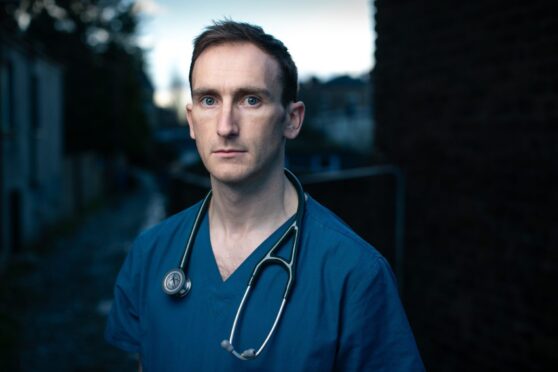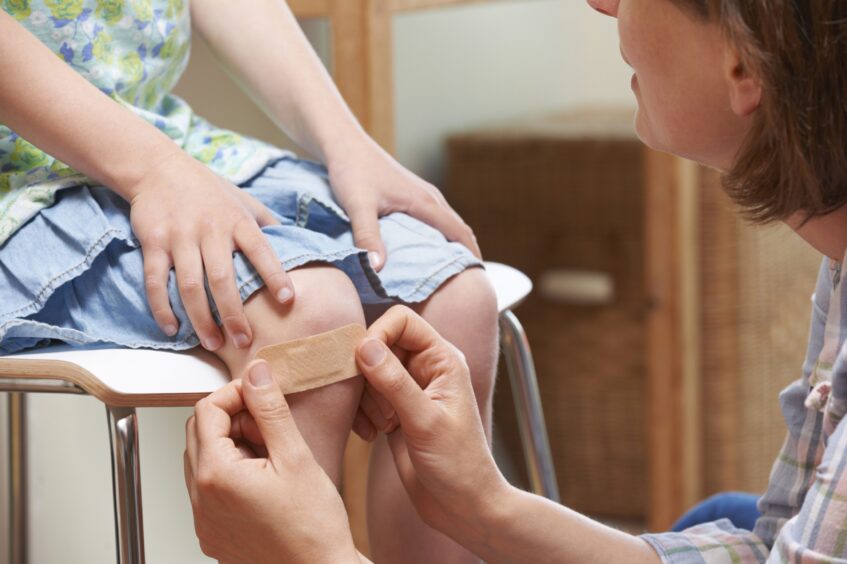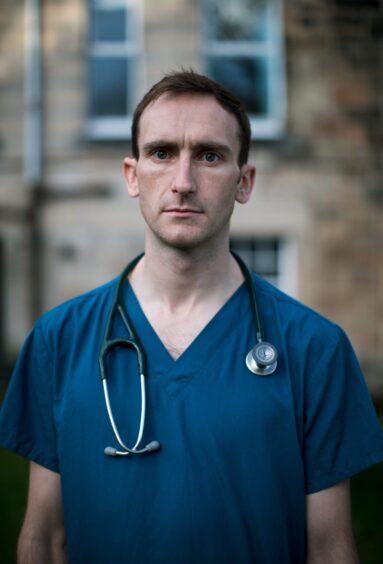
Scots living in the worst deprivation and poverty are bearing the brunt of the increase in illness over the past 12 years, experts warn.
Our poorest wait longer to be admitted to A&E because they struggle to get GP appointments in areas with doctor shortages and also delay seeking medical help for fear of losing time off zero-hour-contract jobs.
The double blow means many are much sicker before eventually getting medical help in A&E.
A&E doctors and medics working with those most affected are now so moved by their plight that they are working to signpost them to food banks and social support.
They have formed the Emergency Medicine At The Deep End group prompted by failing health in Scotland’s poorest and most deprived 10%. It aims to improve patients’ lives by increasing social support offered in A&E.
The group’s founding members are Scottish A&E specialists – including emergency medicine registrar Dr Ryan McHenry, emergency consultant Dr Cath Aspden of the Glasgow Royal Infirmary and registrar Dr Joanna Quinn.
Treatment delays
“Children and adults struggling in our most deprived areas have a higher incidence of illness,” said McHenry.
“This work shows the most deprived are around 20% more likely to wait more than 12 hours for admission to A&E. We have also shown children from more deprived areas are more likely to present to A&E overnight, at times when there’s less access to other services.
“We are seeing children whose treatment has been delayed by poor access to GPs and parents forced to work for fear of losing their jobs.
“They are having to be admitted to hospital for IV antibiotic treatment instead of a course of tablets at home. I can think of a five-year-old I treated recently who had a chest infection that had deteriorated because of the delay in getting access to a doctor.
“We have more children whose asthma deteriorates being admitted instead of improving by taking steroids at home. Their health is impacted by poor, damp housing which raises the risk of chest infections.
“Some of these children arrive late at night in A&E after a parent has finished a work shift and wait up to four to five hours to be seen. Other children have cuts that might have been looked after at home if families could afford the basics like a first aid box.”
Scotland is the zero-hours capital of the UK according to the Office of National Statistics. The percentage of workers on those contracts remains ahead of every other UK nation at 4.1% – it’s 3.6% in England, 3.2% in Wales and 1.5% in Northern Ireland.
McHenry added: “Many are struggling to live on zero-hour and other poorly paid jobs and a number are dying early.”
Decline in life expectancy
Evidence of the drop in life expectancy of Scotland’s most deprived is also revealed in Glasgow University’s Centre for Population Health report on mortality trends in the UK.
The report charts a decline in life expectancy and health going back more than a decade.
It adds that before 2010, mortality rates had improved consistently across all nations of the UK for a great many decades. It says: “Around 2012 improvements at country level either slowed or stopped and death rates among the 20% most socioeconomically deprived populations actually increased.”
It highlights cuts in public spending and social security as two of the main drivers in increased death rates.
Meanwhile, unprecedented rises in infant mortality highlighted in a British Medical Journal (BMJ) report points the finger at rising child poverty.
The BMJ report shows babies in the poorest areas are affected with those in more affluent parts also impacted. It said: “Our analysis also linked the recent increase in infant mortality in England with rising child poverty, suggesting about a third of the increase in infant mortality may be attributed to rising child mortality.”
The Scottish Government said: “Our public health initiatives, such as the universal healthcare visitor pathway, minimum unit pricing of alcohol and action to create a smoke-free generation are complemented by wide-ranging action to reduce poverty and mitigate the impact of the rise in the cost of living.
“By increasing fair access to employment, education and training, and improving our physical and social environments, we make people’s lives better.”

Enjoy the convenience of having The Sunday Post delivered as a digital ePaper straight to your smartphone, tablet or computer.
Subscribe for only £5.49 a month and enjoy all the benefits of the printed paper as a digital replica.
Subscribe © Shutterstock / SpeedKingz
© Shutterstock / SpeedKingz © Andrew Cawley
© Andrew Cawley